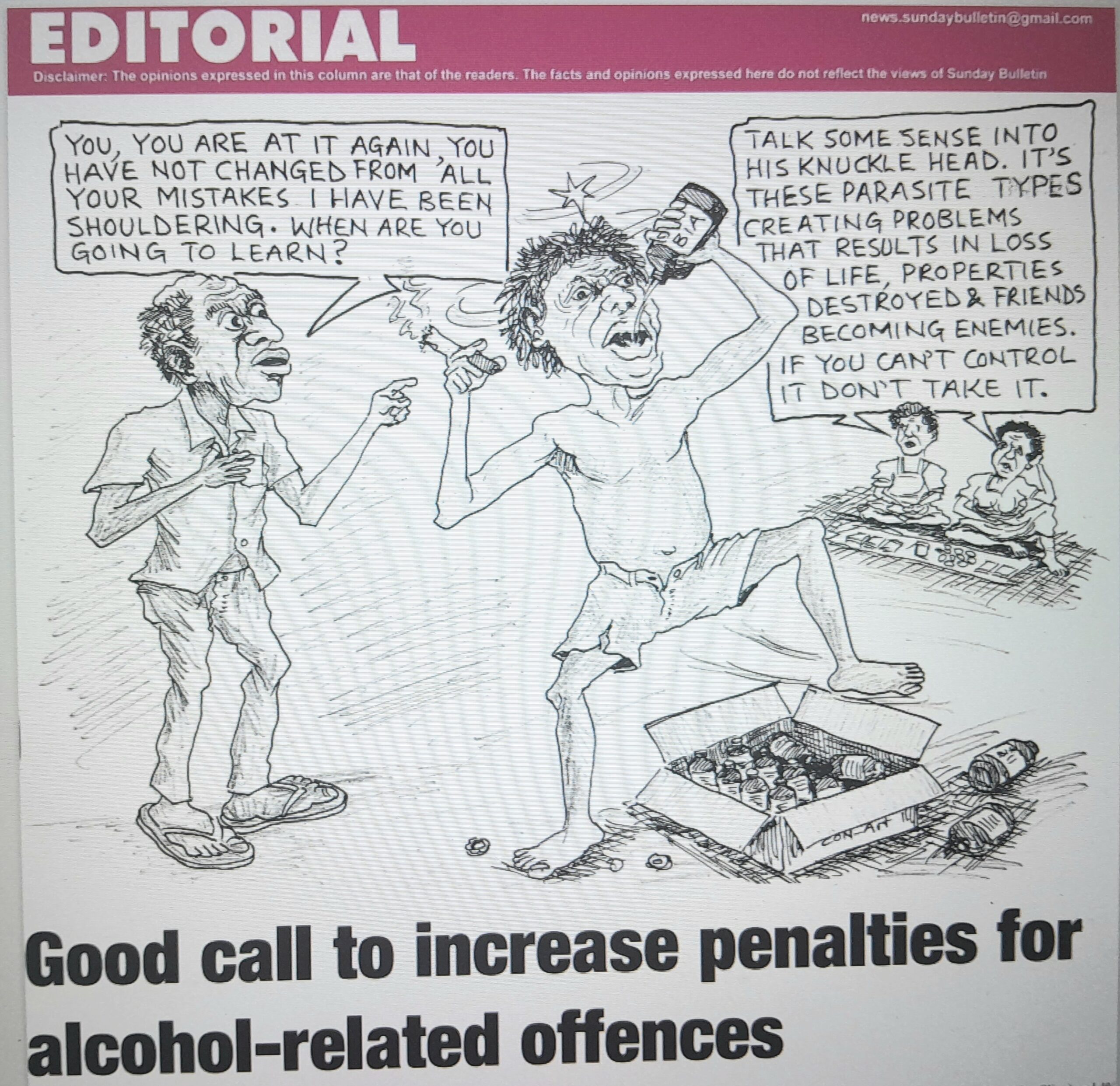FINALLY, the Government has decided to put its foot down and looking into the continues problem of alcohol-related issues throughout the country.
In parliament on Wednesday, Western Highlands Governor, Wai Rapa had asked Prime Minister James Marape to impose a ban on alcohol production and sales as this is the only way forward to solving the prevailing alcohol-related issues in the country.
Governor Rapa had said that alcohol was the main course of many tribal fights, killings and other problems that has been happening in the society and called on the Government to take action to curb the use of alcohol.
The Prime Minister when responding to the question supported the governor by saying “it is true that alcohol was the main course of disorder in our society, however, there are other related issues as well”.
PM Marape said the blame could also be on the users of alcohol. “Production was not an issue but usage of it was a problem,” PM stressed.
Marape went on to urge Parliament to consider the increase in penalties for alcohol and drug related offences as a deterrent to alcohol-induced problems in the country, including returning a parliamentary committee to manage this issue in a bi-partisan approach.
To give perspective to beer-drinking and alcohol use, PM Marape said law & order problems associated with drinking was happening because of the abuse of alcohol more than the alcohol itself.
We commend the WHP Governor and PM for raising this issue in Parliament as this is an on-going problem. Alcohol abuse has become prevalent in our society and it is becoming a norm.
According to an NRI report; despite having an elaborate Liquor Licensing Act (1963), the compliance and enforcement of the law seems to be sagging. Throughout the country especially in the major towns and cities, alcohol consumption in public places, in moving vehicles, in residential areas is becoming uncontrollable and unbearable.
Literature on alcohol and the recent fact-finding exercise conducted by the Law and Justice Sector Secretariat on alcohol abuse also revealed that there is an overwhelming concern and acknowledgement that alcohol and substance abuse was a concern of huge magnitude.
This issue is complex (difficult to deal with), prevalent (the phenomenon is found everywhere), infectious (continually increasing), alluring (the behavior is appealing to many), emulative (the behavior can be easily copied), irresistible (hard to say no), destructive (results are often harmful) and costly (someone will have to pay dearly in monetary terms).
A report by National Research Institute highlighted that alcohol abuse leads to public disorder, domestic violence, rape, fist fights, road accidents, deaths, medical complications, psychological problems, loss of income, creating dependency burden, and many other problems, some even unimaginable. Thus, there was a need to address this encompassing and emerging issue from a whole-of-society approach to resolve this issue.
Even though it is a sector that creates employment and generates revenue, strict measures must also be imposed to curb its related issues. And truly speaking, no country is free from alcohol related problems, but it can be controlled.
A World Health Organisation report (2004) estimated that two billion people worldwide were consuming alcoholic beverages and 76.3 million people were diagnosed with alcohol use disorders. The global burden related to alcohol consumption, both in terms of morbidity and mortality, is substantial in many parts of the world. WHO statistics show that globally alcohol consumption contribute to 3.2% of deaths (1.8 million) and 4% of the disability-adjusted life years lost (58.3 million). Overall, there are causal relationships between alcohol consumption and more than 60 different types of diseases and injuries. In addition to this, alcohol consumption is the leading risk factor for disease burden in developing countries, and the third largest risk factor in developed countries.
So, a call for a harsher or an increase in penalties for alcohol and drug-related problems is very much commended. PM Marape has rightly outlined that: “These are the small things that need to be in place so we order the behavior of our citizens properly. I cannot put a stop to someone’s right to drink beer but it has to be done in a proper manner. It is an industry that also creates employment and generates revenue. This Parliament is recommended to pass greater penalty for alcohol-related problems in our country,” he said.


